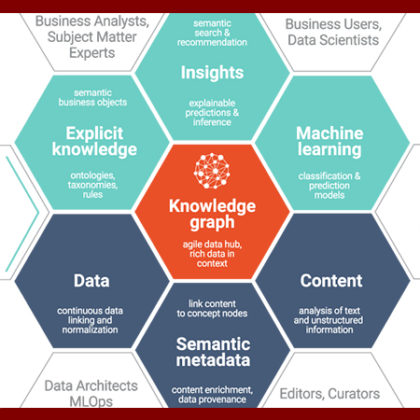
Description
Focus Area: Machine Learning / Artificial Intelligence / Explainable AI
Estimated Budget Range: TBD
Submission Deadline: Wednesday, October 1st, 2025 at 12:00, ET (TBD)

SUMMARY
A visually interactive knowledge graph operating system is needed to facilitate the creation of shared knowledge products in a safe and secure environment for today’s distributed and multi-disciplinary teams. AI/ML enabled decision support use cases increasingly demand novel ways to deal with unexpected observed behavior, high-impact low probability events, and contextual nuances that machines cannot understand. This requires not only the dynamic modeling of complex problem domains, but also evidence-based knowledge systems that have been developed in collaboration with distributed, multi-disciplinary, and multi-domain expert communities to encode human expertise (i.e., identify classifiers, similarities, predictors, and simulations).
Patriot Labs is interested in exploring customer and end-user opportunities requiring knowledge platforms that enable experts to capture critical thoughts, collaboratively test hypotheses, and continuously improve the resultant performance characteristics of ML models and AI applications. Preferred requirements will include a collaborative visual interface for creating and maintaining use case defined knowledge graphs.
Requirements must be data agnostic and support the efficient capture of subject matter expertise – enabling users to quickly build knowledge products. Knowledge representations should demonstrate the contextual relationships and interdependencies between underlying concepts that are key drivers of impacts, events, and/or decisions within targeted use cases. Attributes may also include the ability to develop, share, reuse, and improve problem-focused knowledge repositories, enabling: (a) semantically linked data (i.e., ontologies); (b) modeling of experiential/ heuristic knowledge; (c) identification of outlier outcomes; and (d) the revealing of new insights and potentially new response recommendations.
Approaches sought could include: (i) knowledge engineering services using highly expressive semantic models; (ii) auto-generated machine-executable reasoning objects; (iii) exploitation of time-series data across all sources of evidence; (iv) runtime enrichment engine that generates new features from original data; (v) support for ML/AI pipelines; (vi) ontological-based data discovery, pattern detection, and cueing (e.g., Is a threat imminent?); and (vii) predictive/probabilistic analytics (e.g., Is a threat likely to be impending?). Special consideration given to requirements that enable multi-domain groups to rapidly develop and iteratively enhance knowledge graphs.

